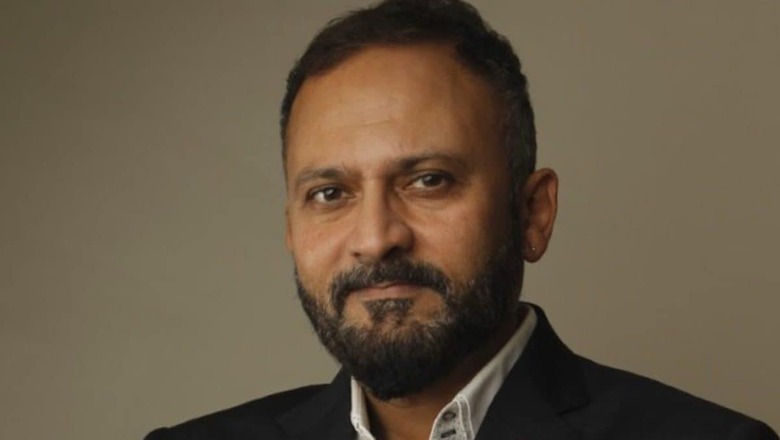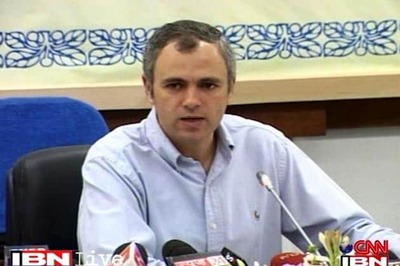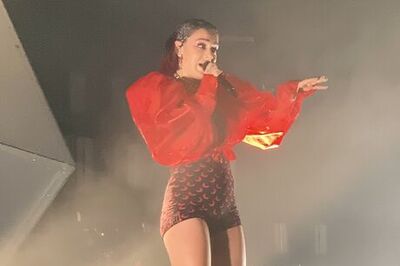
views
The recent appointment of Raghu Iyer as the CEO of the Indian Olympic Association (IOA) seems to have caused quite a stir. However, it’s not the actual infighting that is seemingly brewing between multiple Executive Council (EC) members and their President PT Usha that is concerning.
The bigger story that lies underneath is, to put it bluntly, the lack of understanding of why a professional approach is needed within our sporting organisations. It’s a story older than we realise, and one that rears its ugly head occasionally, yet never seems to be exposed.
The idea that instilling businessmen in a position of authority in a sporting organization, especially if they aren’t professionals associated with the sport themselves, is counter-intuitive is in itself flawed to an extent.
Sporting organizations, especially when underfunded, require people with extensive business acumen to come in and help them fight the odds that they are already facing. A CEO is exactly required for the same: to have someone implementing the strategic plans that the organization draws up, handling the allocated budgets, and understanding how to manage said finances, and on the outside, someone who is involved in maintaining and developing government and stakeholder relations.
So, the decision to involve businessmen in positions of power in such organizations is not taken to diminish the spirit of the sport, but rather to foster and maintain the spirit of the sport whilst ensuring their functioning in the ultimately capitalist environments these organizations exist under.
Let’s take a step back to understand the bigger picture we are presented with.
To start, let’s take a look at the IOA and its current pressing issue itself. 12 out of 15 EC members have responded to President Usha’s appointment of Iyer with disdain, stating that it was done on short notice with a clear lack of communication on multiple fronts. There are multiple reasons, such as the timeline they were presented with, Iyer’s previous roles invoking doubt in their minds, and that he’s being overpaid. Moreover, an internal IOA email was also leaked on social media highlighting the remuneration.
In the IOA advertisement for the CEO position, specific eligibility criteria were outlined including that the prospective candidate should be a management professional with a minimum of 10 years experience in a CEO role and possess a comprehensive understanding of international sporting structures and governance.
Globally, sporting organisations working with CEOs are commonplace. The International Olympic Committee (IOC) itself last year expressed dissatisfaction over the absence of a CEO in IOA, a sort of rap on the knuckles from the global body.
But the appointment of one, with a lucrative pay package, hasn’t gone down well with several IOA executive members.
Now, let’s get down to the brass tacks. If you expect a CEO to get a sponsorship deal(s) worth Rs 100 crore, why is there an expectation that he/she shouldn’t be paid handsomely for a job well done?
To give an example, CEOs in the Indian Super League (ISL), which has been around for 10 years, get paid at least Rs 1.5 crore per annum. Similarly, both broadcasters and CEOs in the Kabaddi league make six-figure pay, which shows how lucrative sports other than cricket are becoming.
The Indian Cricket Board (BCCI) CEO is paid close to a million dollars a year.
With professional setups all around, a career in sports is now a serious option. It’s time to dispel the idea that politicians and bureaucrats have the wherewithal to run such organisations.
It is imperative to hire experienced professionals armed with the knowledge and understanding of what it takes to grow the business into properties worth billions of dollars.
Iyer, for instance, was the CEO of the Rajasthan Royals, the Lucknow Super Giants, and the Rising Pune Supergiant in the Indian Premier League (IPL). He has previously worked with ISL club ATK Mohun Bagan and Ultimate Table Tennis (UTT) franchise RPSG Mavericks.
Let’s be clear that it isn’t merely the threat of a consequence that intimidates the current setup in the organizations, but more specifically, the prospect of losing out on monetary and political benefits that sets things into motion.
And the IOA isn’t an anomaly.
Not too long ago, the All India Football Federation (AIFF) found itself in a similar quagmire. It all started going downhill for the AIFF as controversial former president Praful Patel, whose third term in office ended in December 2020, kept holding the position citing a pending case in the Supreme Court.
The case, which was pending since 2017, allowed him to extend his term while refusing to hold elections till the issue of a new constitution was settled by the top court. In doing so, Patel violated all principles of good governance for many years.
Then finally, FIFA themselves had to step in and suspend AIFF for not following due procedure and practices. It was only after receiving that slap on the wrist did the AIFF righted their wrongs.
With such instances occurring in sporting organizations in the country, it also begs another question: why does a sporting organization, in its essence, need the aid of a CEO, especially one who has not perhaps played the game at a high level? How will they truly understand the nuances of the sport they are meant to cover?
Well, herein lies yet another important realization and distinction that needs to be made: Sporting organizations, at the end of the day, are also businesses.
All of this is said to highlight the fact that ultimately what the 12 members of the EC in the IOA are indulging in is rather disappointing, as it brings to light the fact that they are not in favour of having a professional CEO take charge. Not only that, but resorting to hitting back at PT Usha and the other members who voted in favor of Iyer such as Mary Kom, and Achanta Sharath Kamal is a dismal sight to behold.
These actions open up the field to even more questions as to what truly might be their ulterior motive in this case. But, the sad reality is that it is not just the IOA paying the hefty price, but sport itself.




















Comments
0 comment